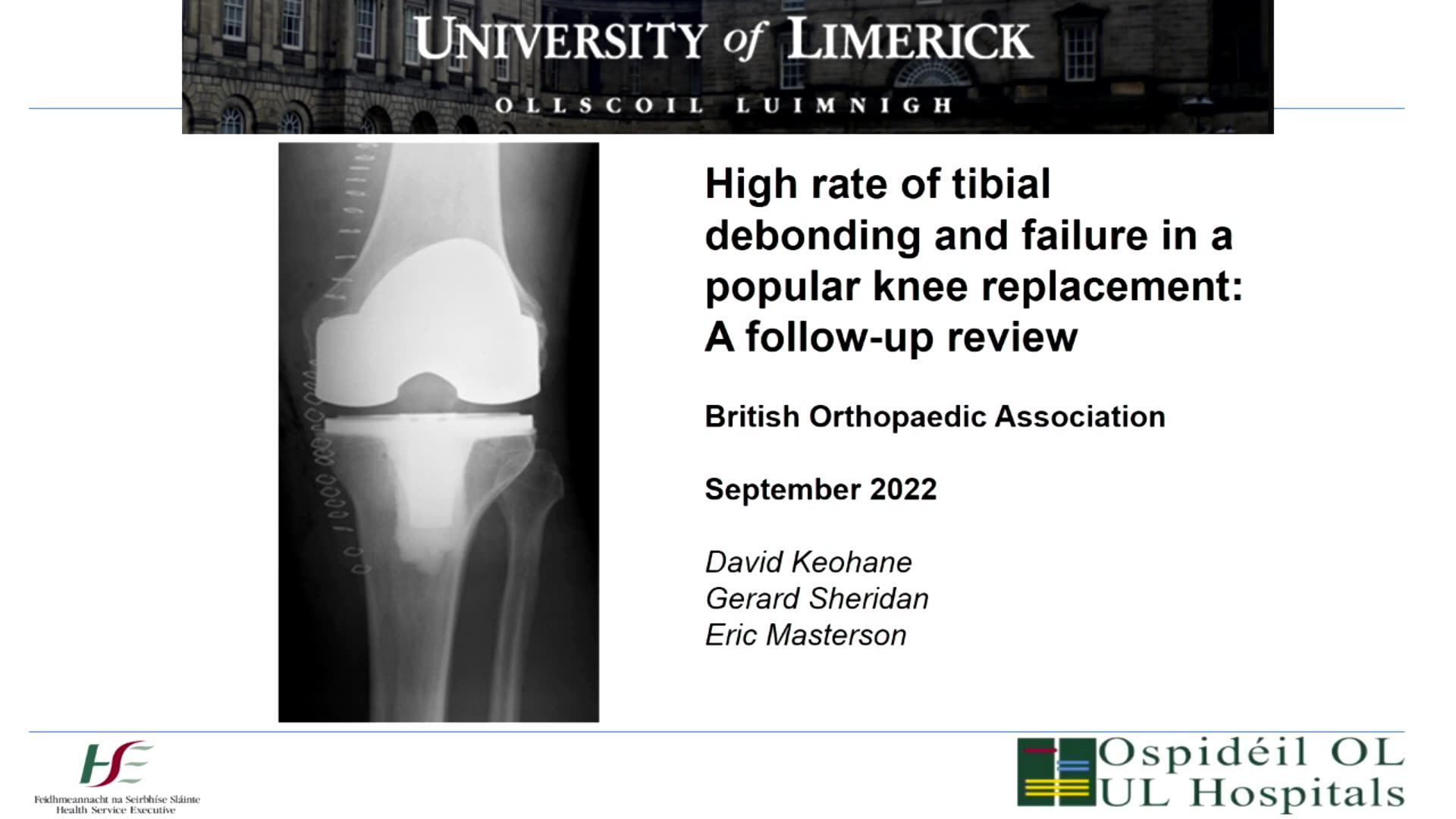Please login to view this media

- Talk
- 21/09/2022
- UK
High Rate of Tibial Debonding and Failure in a Popular Knee Replacement : A Follow-Up Revie
Description
David Keohane presents a significant review on the high rate of tibial debonding and failure associated with the NexGen knee replacement system, a popular choice for total knee arthroplasties in the UK. Representing Ireland and working as an ST4, he emphasizes the importance of the NJR database, which documents over 1.35 million primary total knee replacements. The research highlights that the primary aim of knee replacements is pain relief, alongside the observation that the increasing number of procedures will likely result in more revisions in the future.
Keohane discusses a cohort of 352 NexGen total knee arthroplasties performed on 331 patients, with a concerning overall revision rate of 17.6%, where 16.7% of those revisions were attributed to aseptic loosening—an alarming figure considering that mean time to revision was just under four years. The study meticulously identifies patients who faced complications post-operation, noting specifics around their demographics and treatment methods.
Clinically, patients exhibited knee pain and swelling, with imaging revealing significant bone loss around the medial side of the implant. The data showed that most revisions could be performed without complications, often finding the tibial component could be removed easily, pointing to a concerning trend in product performance. Keohane reviews four contributing factors to early aseptic loosening and expresses apprehension about the NexGen implant's reliability.
In a notable conclusion, alongside contributors from various institutions confirming similar issues, it is reported that the problematic tibial component has since been withdrawn from the market by Zimmer. The presentation ends with a call for heightened awareness in the surgical community about the potential issues with this implant.